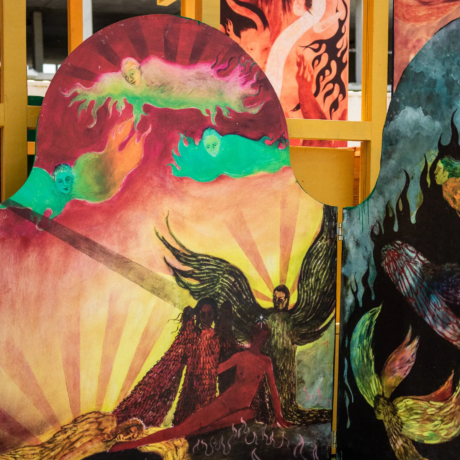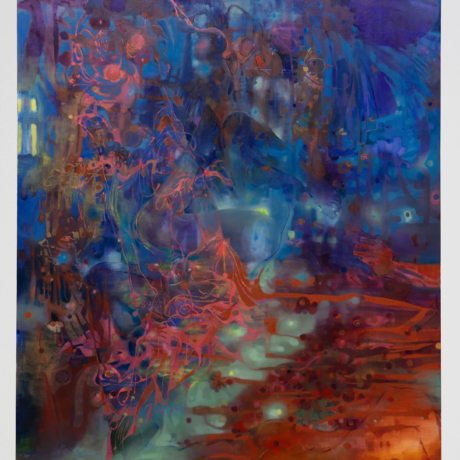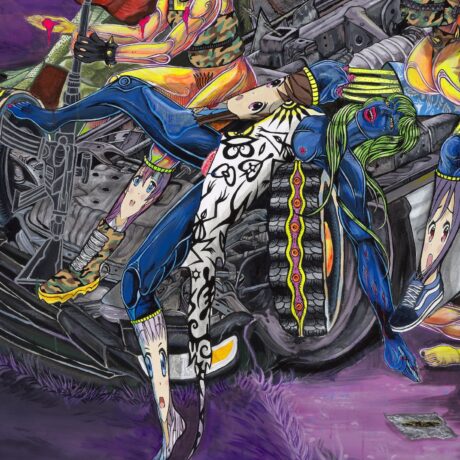
I am in equal parts repelled and seduced by pop music—as, I believe, many people are. I hate its cheap manipulation, and I feel weirdly betrayed by the fact that the words seemingly created especially for me are shared with a million other people. More than anything, however, I am conflicted by how I often take to heart the saccharine lyrics.
In Ed Atkins’s 2014 film Ribbons, Dave, computer-generated man and our protagonist, sits naked, sometimes hiding under the table, always drinking and smoking, and warbling along to a Randy Newman song about loneliness. This song was not written for him and yet he turns to it as an outlet for his innermost feelings; it is his belief in the lyrics which completes the pathetic tableaux. It goes from bad to worse, when his singing morphs into an asinine soliloquy featuring tragic non-sequitur aphorisms. Then the pop turns to opera and the whole thing feels slightly ridiculous.
It is easy to feel repelled by Dave’s unsolicited outpouring of emotion. It is so excessive, so gross in its display of unbridled woe. Escape is futile, the melodrama is writ large, projected across three towering screens. And, as Ed Atkins has said himself, “of course, the protagonist would have to be Dave, a white, straight, western man”. Jennifer Doyle argues that we are socialized to accept this character’s tears, unlike those of the so-called hysterical female, as real.

Dave continues to talk to us (“I could never simply conflate hiding with cowardice”) whilst words appear on screen including “A Demand for Love!”, “Collared and cuffed!” and “Rebuttal!”. Despite their poetic syntax, these contextless phrases stab at sincerity but hold no meaning; his earnestness ends in our revulsion and his shame in having tried to tell us how he feels: “Sorry for that one particularly histrionic horrible mess.”
Dave is often referred to as an avatar, Atkins calls him a surrogate. In contradiction with his hyperreal resemblance, he sits there in place of a human body. His digital self reflects how with online communication we can be present remotely; the body is no longer the bastion of authenticity, our identities now constructed from information. And Dave, with all the compulsion of a sweet love song, does not so much tell us how he feels—after all, how could he?—but rather goes through the motions, hopelessly performing the act of emotional outpouring on repeat.





